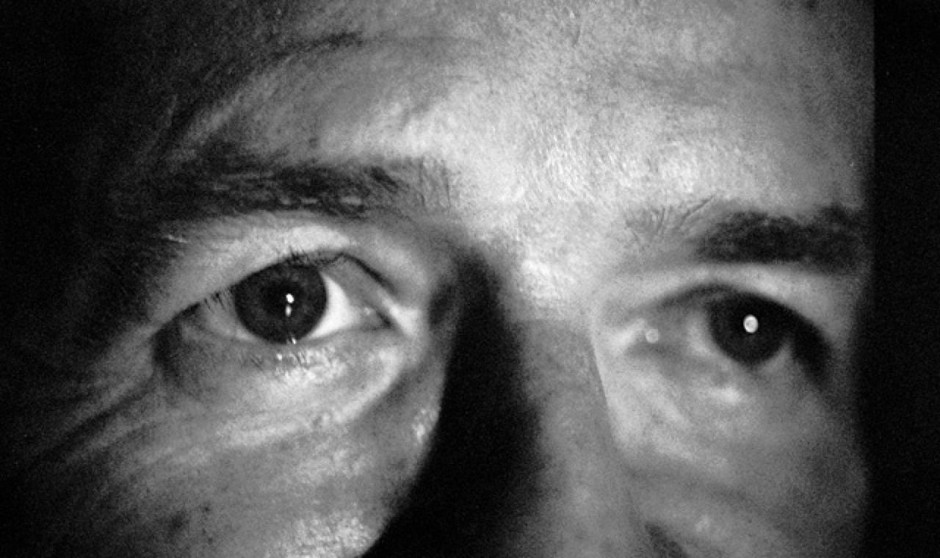A Twitter bio offers a curious combination of infinite time (to compose and write) though limited words to describe oneself. It therefore offers an insightful glimpse to the self-perception of the author. Keven Bartle’s bio purports
Daddy, Headteacher and co-conspirator with
@hgaldinoshea Confidently humble & humbly confident Nil magnum nisi bonum Head in the clouds. Feet on the ground“Nil magnum nisi bonum” (nothing is great unless good).

Keven Bartle
Keven’s presentation at #TLT15 (inventively super-imposed upon the themes of The Matrix), a trailer to a leader prepared to question the very Matrix within which he leads. A leader intent on “seeing how deep the rabbit-hole goes” and encouraging others to at least peer down. (I will later fall right on in). His presentation drew heavily from Dee Hock’s Birth of the Chaordic Age (and from Complex Adaptive System theory) and I highly and enthusiastically recommend it. It was the concept of “leading your superiors” that drew a furrowed brow.
Lead yourself, lead your superiors, lead your peers, employ good people, and free them to do the same. All else is trivia. – Dee Hock
Birth of the Chaordic Age
Dee Hock was the founder, president, and CEO of VISA International. In Birth of the Chaordic Age, Hock argues that traditional organisations have become too complex and hierarchical. Hock advocates a new organizational form, embracing the chaos of competition and the order of cooperation, reinventing leadership and management, transforming business and society.
Hock also introduces the ruminations of “Old Monkey Mind,” Hock’s own thoughts and reflections. Though I found this bifurcation distracting, it did reveal the depth of thinking I found hard to fathom. Hocks insights, however, are clear and provoking. In the chaordic age, he contends,
Success will depend less on rote and more on reason; less on the authority of the few and more on the judgment of many; less on compulsion and more on motivation; less on external control of people and more on internal discipline.
Dee Hock p265
An age we are well and truly invested in, given the book was published back in 1999.
The first third
I found first third of the book captivating.
The first and paramount responsibility of anyone who purports to manage is to manage self; one’s own integrity, character, ethics, knowledge, wisdom, temperament, words, and acts. It is a complex, never-ending, incredibly difficult, oft-shunned task. Management of self is something at which we spend little time and rarely excel precisely because it is so much more difficult than prescribing and controlling the behaviour of others. Without management of self, no one is fit for authority, no matter how much they acquire. The more authority they acquire the more dangerous they become. It is the management of self that should have half of our time and the best of our ability. And when we do, the ethical, moral, and spiritual elements of managing self are inescapable.
Asked to identify the second responsibility of any manager, again people produce a bewildering variety of opinions, again downward-looking. Another mistake. The second responsibility is to manage those who have authority over us: bosses, supervisors, directors, regulators, ad infinitum. In an organized world, there are always people with authority over us. Without their consent and support, how can we follow conviction, exercise judgment, use creative ability, achieve constructive results, or create conditions by which others can do the same? Managing superiors is essential. Devoting a quarter of our time and ability to that effort is not too much.
Asked for the third responsibility, people become a bit uneasy and uncertain. Yet, their thoughts remain on subordinates. Mistaken again. The third responsibility is to manage one’s peers – those over whom we have no authority and who have no authority over us – associates, competitors, suppliers, customers – entire environment, if you will. Without their support, respect, and confidence, little or nothing can be accomplished. Peers can make a small heaven or hell of our life. Is it not wise to devote at least a fifth of our time, energy, and ingenuity to managing peers?
Asked for the fourth responsibility, people have difficulty coming up with an answer, for they are now troubled by thinking downward. However, if one has attended to self, superiors, and peers, there is little else left. The fourth responsibility is to manage those over whom we have authority. The common response is that all one’s time will be consumed managing self, superiors, and peers. There will be no time to manage subordinates. Exactly! One need only select decent people, introduce them to the concept, induce them to practice it, and enjoy the process. If those over whom we have authority properly manage themselves, manage us, manage their peers, and replicate the process with those they employ, what is there to do but see they are properly recognized, rewarded, and stay out of their way? It is not making better people of others that management is about. It’s about making a better person of self. Income, power, and titles have nothing to do with that.
The obvious question then always erupts. How do you manage superiors -bosses, regulators, associates, customers? The answer is equally obvious. You cannot. But can you understand them? Can you persuade them? Can you motivate them? Can you disturb them, influence them, forgive them? Can you set them an example? Eventually the proper word will emerge. Can you lead them?
P69-70 I read, re-read. Pondered and re-read. The emphasis on ‘self,’ brutally apparent. The importance of recruitment subtle.
Your organization needs to be absolutely clear about purpose and principles and must be very careful to know what a purpose and a principle is—you know, a purpose is not an objective, it’s not a mission statement—a purpose is an unambiguous expression of that which people jointly wish to become. And a principle is not a platitude—it is a fundamental belief about how you intend to conduct yourself in pursuit of that purpose. You have to get very precise about these things. If the purpose and principles are constructive and healthy, then your organization will take a very different form than anything that you ever imagined. It will release the human spirit and will be constructive of the biosphere. Natural capital and human capital will be released in abundance and monetary capital will become relatively unimportant. To put it another way, I believe that purpose and principle, clearly understood and articulated, and commonly shared, are the genetic code of any healthy organization. To the degree that you hold purpose and principles in common among you, you can dispense with command and control. People will know how to behave in accordance with them, and they’ll do it in thousands of unimaginable, creative ways. The organization will become a vital, living set of beliefs.
Hock’s presentation and precise definition of purpose and principle only reinforced my determination to be clearer in my own personal ambition and definition of education.
Simple, clear purpose and principles give rise to complex, intelligent behavior. Complex rules and regulations give rise to simple, stupid behaviour.
Dee Hock
Teaching is complex. Leaders, given Hock’s depiction, should make every effort to make education as simple as it can be, but not simpler.
The middle
The middle of the book became a little turgid as the narrative become more heavily invested in banking and less about organisations. That said, there were still many interesting passages and useful lesson to learn. As with the meeting between Hock and Mr Carlson.
Dumbfounded, I watch as he leans back in his chair and asks the question with which he closes all meetings. “Did the meeting serve your purpose?” Did it serve my purpose! I have never been so treated in my entire life. For this man, I would do anything. Such an obligation as he has just given me is a joy that should come to everyone.
The following week I tested the “Did the meeting serve your purpose.” Rather I asked “Did you get everything you needed from the meeting?” The response was a surprised, “Yes, [surprise] I did. Thank you.” I have asked this question numerous times since. In most cases, it concluded the meeting positively. In a handful of situations, conversations that I had perceived had finished, were not and so were continued.
Impossibility can only be determined by the attempt.
Given the right circumstances, from no more than dreams, determination, and the liberty to try, quite ordinary people consistently do extraordinary things. It didn’t feel extraordinary; it felt extremely painful.
Dee Hock p179 and p182
I felt that the concluding sentence to this paragraph offer a realism that many operatic semi-autobiographies gloss. Hock’s work ethic was deep rooted and well established. His success hard earned.
Data, in turn, becomes information when it is assembled into a coherent whole which can be related to other information in a way that adds meaning. (Bateson’s “difference that makes a difference.”) Information becomes knowledge when it is integrated with other information in a form useful for deciding, acting, or composing new knowledge. Knowledge becomes under-standing when related to other knowledge in a manner useful in conceiving, anticipating, evaluating, and judging. Understanding becomes wisdom when informed by purpose, ethics, principle, memory of the past, and projection into the future.
The fundamental characteristics of the opposite ends of this spectrum are very different. Data, on one end of the spectrum, is separable, objective, linear, mechanistic, and abundant. Wisdom, on the other end of the spectrum, is holistic, subjective, spiritual, conceptual, creative, and scarce.
I word of warning to oneself, a data advocate.
The final third
The final third of the book, the second phase of the VISA business, was more banking, legislation and governance than leadership. No less important, however less relevant to me personally. In truth, I was thankful that I was coming towards the end of the book. Unsurprisingly, having got to know Dee Hock a little through the book, through a little wider research, he held back one final reminder to the very last few lines.
…it is no failure to fall short of realizing all that we might dream; the failure is to fall short of dreaming all that we might realize.
We must try.
Dee Hock p311
I have had a good look into the rabbit hole.
I returned to this post today (January 2nd 2023) to thank the Keven for challenging not only what I think about education but the way I think about it. I would continue to reflect on this presentation for four years, and continue to do so.
[qr_code_display]


